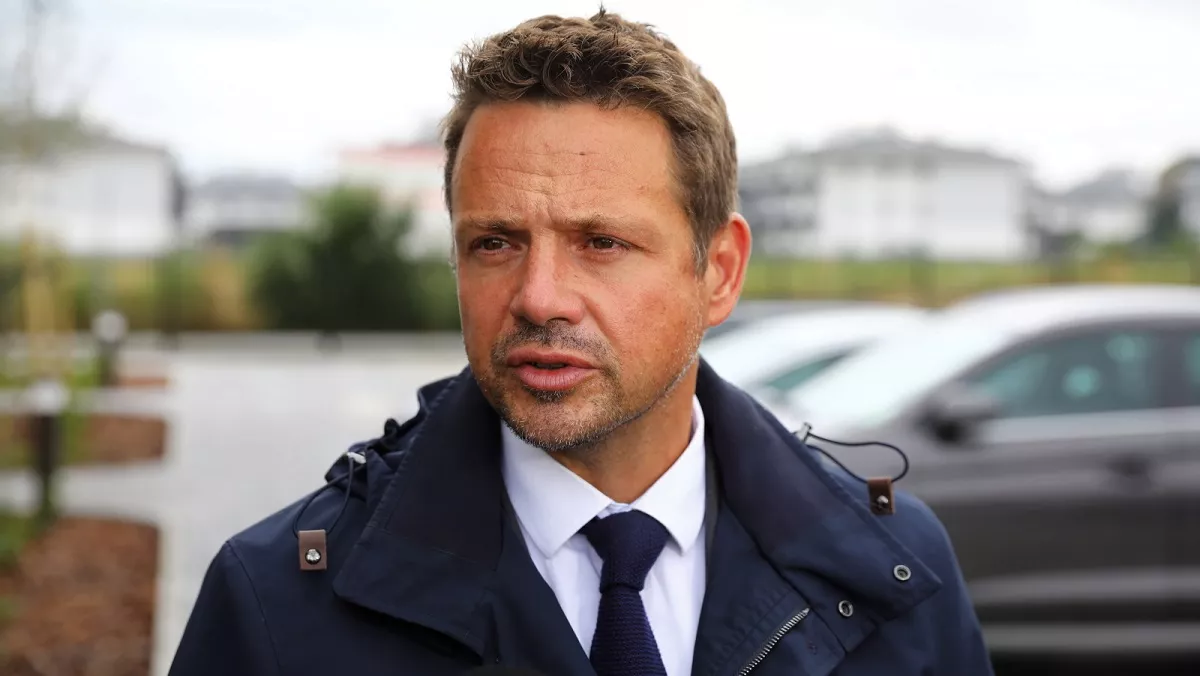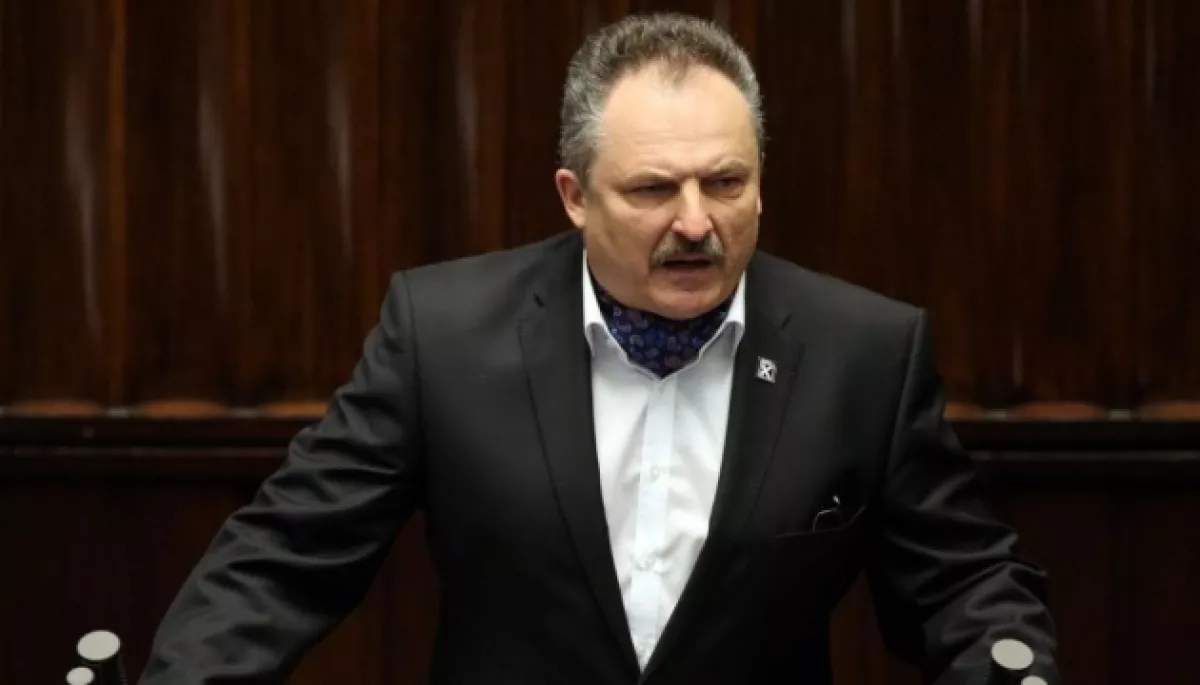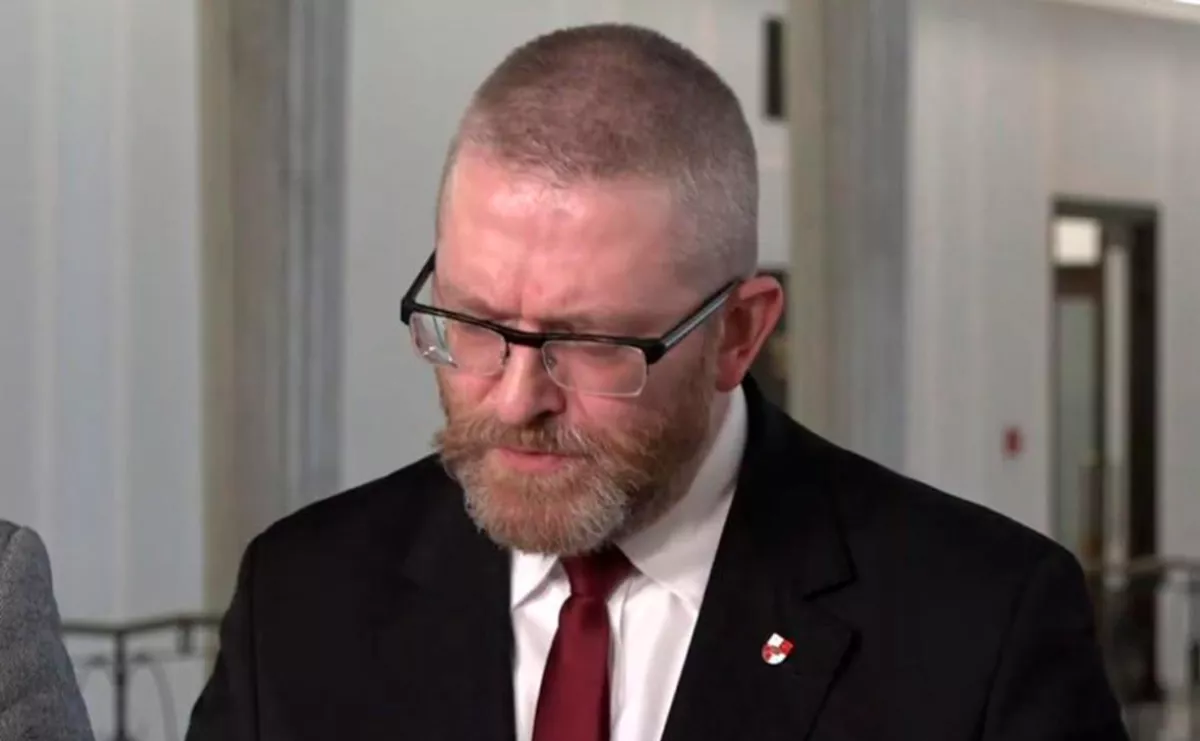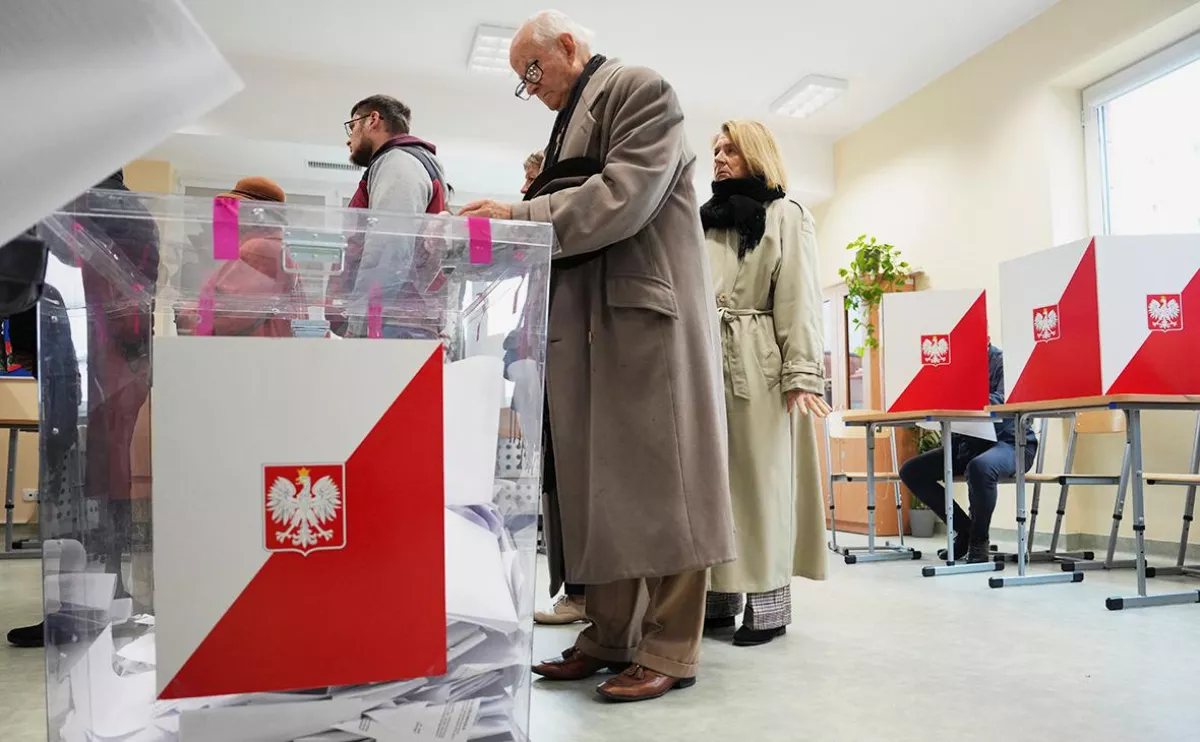Polish elections: Anything but boring Scandals, populism, and debates
On 18 May, Poland will hold its presidential election. Voter preferences remain highly volatile. A total of 13 candidates have officially registered. As of now, the leading trio consists of Rafał Trzaskowski from the liberal Civic Platform (PO), Karol Nawrocki representing the conservative Law and Justice party (PiS), and Sławomir Mentzen from the far-right Confederation of Liberty and Independence (WiN).

Rafał Trzaskowski had recently been the clear frontrunner, polling at 33%. His closest rival, centre-right candidate Nawrocki, stood at 25%, while Sławomir Mentzen held 17% support. However, the dynamics shifted significantly following the televised debates held on 14 April.
Trzaskowski, the Civic Platform candidate, failed to appear at this “political sparring match” — whether out of weakness or strategic calculation remains unclear. A poll conducted by United Surveys after the debate revealed a sharp drop in Trzaskowski’s support, while Nawrocki’s ratings rose. In addition to his rival’s absence, Nawrocki’s surge in popularity was boosted by his skilful populist rhetoric.
The PiS candidate once again pledged not to send Polish troops to Ukraine and announced his intention to withdraw from the unilateral implementation of the EU’s Migration Pact, which obliges Poland to accept a set quota of refugees.
Nawrocki also promised to establish an Office for Combating Illegal Migration and to build centres for large-scale deportations. Similar rhetoric came from Sławomir Mentzen, the candidate from the far-right Confederation party.
It is clear that security issues, amid a global crisis, are a top concern for Polish society — something right-wing populists are actively exploiting. At the same time, several Polish politicians are prioritising the militarisation of the country. Even “left-wing populist” Adrian Zandberg of the Razem party lamented that Poland’s chemical industry cannot supply the army with enough ammunition, while the steel industry is in decline.
Military preparations, in one form or another, were mentioned during the debates by both the “independent candidate” Artur Bartoszewicz and Szymon Hołownia of the Poland 2050 movement. The 48-year-old TV presenter Hołownia even held up his wife — a fighter pilot and MiG-29 officer — as an example for the nation.
Joanna Senyszyn, the left-wing candidate, argued that Poland doesn’t need to spend 5% of its GDP on the military — 3 to 3.5% would be sufficient.
Another major point of contention during the debates was the European Union. Over the years of Poland’s EU membership, many ordinary Poles have developed a long list of grievances against Brussels — something many local politicians have been quick to exploit.

For example, Marek Jakubiak of the "Free Republicans" took a Eurosceptic stance during the debates, stating that it pains him to see Germans “running the show” in Poland. The 65-year-old brewer promises to be a “tough president,” though that seems unlikely — in the 2020 presidential election, he received just 0.17% of the vote.
Conservative candidate Karol Nawrocki also champions the slogan “Poland first, Poles first,” and is critical of Germany as well. However, the PiS candidate — like the other Eurosceptics — has no intention of leaving the European Union. What he proposes is opposition to specific EU policies, such as the already mentioned Migration Pact or the Green Deal, and greater autonomy for Warsaw. Essentially, the idea is to continue receiving the benefits of the single market and Brussels' support, while rejecting full compliance with EU regulations.
And what does Rafał Trzaskowski — who recklessly skipped the debates yet remains the frontrunner in the race — think about all this?
The 53-year-old seasoned liberal politician has previously served as an advisor to the Committee for European Integration and as the Mayor of Warsaw. He already ran for president in 2020 but lost to Andrzej Duda of PiS. In his current campaign programme, Trzaskowski places a strong emphasis on "security" and military spending, proposing to raise Poland’s defence budget to 5% of GDP. At the same time, he supports liberalising abortion laws. However, he is also mindful of right-wing populist sentiments and plans to revise the aid programme for Ukrainian refugees. Naturally, he also pledges support for small and medium-sized businesses.

But what would an election be without a scandal?
Karol Nawrocki — the son of a Gdańsk lathe operator who was active in “Solidarity” in the 1980s, a former boxer and footballer, and now head of the Institute of National Remembrance — has emerged as a serious challenger to the ruling liberals' candidate.
And just recently, a report surfaced in the media that one of the two flats declared by Nawrocki had been acquired from an elderly gentleman named Jerzy in exchange for a promise of care. However, concerned citizens told journalists that Nawrocki showed no interest in looking after the man.
Poland’s liberal Prime Minister, Donald Tusk of the Civic Coalition, was quick to react: “This housing scandal involving Mr. Nawrocki is disgusting… If I understand correctly, he was supposed to care for Mr. Jerzy — but it seems he was more interested in his apartment.”
The prime minister also seized on media reports stating that the former owner ended up in a Gdańsk nursing home after the property was sold to Nawrocki.
“I wouldn’t want Poland to end up in the same situation as Mr Jerzy — but that’s a decision for the voters, not for me,” remarked Prime Minister Tusk.
Colonel Rafał Syrysko, head of Poland’s Internal Security Agency (ABW), has already announced plans to launch an investigation. When Karol Nawrocki accused the security services of meddling in the election campaign, the ABW chief rejected the claim and threatened to open a second case — this time for discrediting the agency and undermining public trust in it.
Meanwhile, the campaign press office of the PiS candidate insists that Mr Jerzy was Nawrocki’s neighbour and that the candidate had given him money to buy the flat, which Jerzy had agreed to return in exchange for help. They also claim Nawrocki has never used the apartment himself.

But another contender for the Belweder Palace, Grzegorz Braun — representing yet another nationalist faction, the “Confederation of the Polish Crown” — stirred up a fresh scandal himself. The radical candidate, together with his aides, removed the EU flag from Poland’s Ministry of Industry, though they neatly placed the flagpole back afterward.
Braun then wiped his boots with the European flag, declaring, “This is Poland, not Brussels.” Ironically, Braun is himself a Member of the European Parliament. He called the EU “an organisation hostile to Poland.” This wasn’t his first controversial stunt. He previously treated the Ukrainian flag the same way during an incident in Biała Podlaska.
In December 2023, the radical politician attempted to extinguish Hanukkah candles during a memorial event in the Polish Sejm. Then in January 2025, Braun disrupted a moment of silence for Holocaust victims in the European Parliament, insisting that the memory should also include “the genocide in the Gaza Strip.” He was subsequently removed from the chamber and suspended from his duties in the European Parliament.
On April 16 this year, the scandal-prone presidential candidate and his aides stormed a district hospital in Oleśnica, where they unlawfully confined a female gynaecologist in her office for an hour. According to the doctor, he also used physical force and verbally abused her. The far-right politician staged the incident to demonstrate his opposition to abortion. As a result, the prosecutor’s office is considering opening a criminal case.
It seems Grzegorz Braun is determined to forge an image as a radical nationalist by any means necessary—a stance that, given current sentiments across Europe, could potentially yield significant political dividends. However, he faces stiff competition in this ideological space, and it's arguably not the pro-European liberals he’s undermining most, but rather his own allies in the far-right camp.
Indeed, this year’s presidential election features two far-right candidates, both from different branches of the Confederation movement. With his increasingly controversial antics, Braun and his "Confederation of the Polish Crown" risk acting as spoilers to the more electorally viable Sławomir Mentzen, leader of the “Confederation for Liberty and Independence” (WiN).
In short, elections in Poland are anything but dull.

The "apartment issue" surrounding Karol Nawrocki has clearly soured the political atmosphere for the PiS conservatives. As of May 6, a United Surveys poll showed that if parliamentary elections were held today, the liberal "Civic Platform" would win.
In the previous poll, PiS was in first place. Besides "Civic Platform," "Law and Justice," and the "Confederation" (WiN), the "Third Way" of Szymon Hołownia and the traditional Polish left would also make it into the Sejm. Meanwhile, their competitors from the left-liberal "Razem" party would fail to secure any parliamentary seats.
The polls also indicate a high level of political mobilisation among Poles, with 90 per cent of respondents stating they are ready to vote.
As for the most recent presidential rankings, according to the CBOS poll on April 28, Rafał Trzaskowski has 31% support (down 2% from the beginning of the month). Former boxer Karol Nawrocki has 27% support (up 2%).
Thus, Trzaskowski's lead over his main competitor has decreased from 8% to just 4% in less than a month. In third place is the Confederation (WiN) candidate, Sławomir Mentzen, with 16% (-1%). Szymon Hołownia ("Third Way"), Adrian Zandberg ("Razem"), and Magdalena Bejat (Leftist candidate) all receive 4% support. Radical nationalist Grzegorz Braun has only 2%.
A similar picture emerges from a United Surveys poll conducted for Wirtualna Polska. The decline in popularity for the ruling "Civic Platform" candidate is a consistent trend throughout the presidential campaign—Trzaskowski started with 40.4% support in November 2024, marking a decline of 8.8%. Nawrocki, on the other hand, has shown positive dynamics but began to lose momentum toward the end of the campaign.
It is clear that the candidates from the "Civic Platform" and "Law and Justice" parties will make it to the second round. Current forecasts suggest that Rafał Trzaskowski will win in the second round. However, the intrigue remains, as more than 7% of Polish respondents are still undecided.
Whoever wins—whether a liberal or a conservative—the outcome will likely have little impact on Warsaw's domestic and foreign policies. The rhetoric of freedom and independence is one thing, but the real interests of the political and economic elites, which are, in one way or another, tied to Brussels, are quite another.








